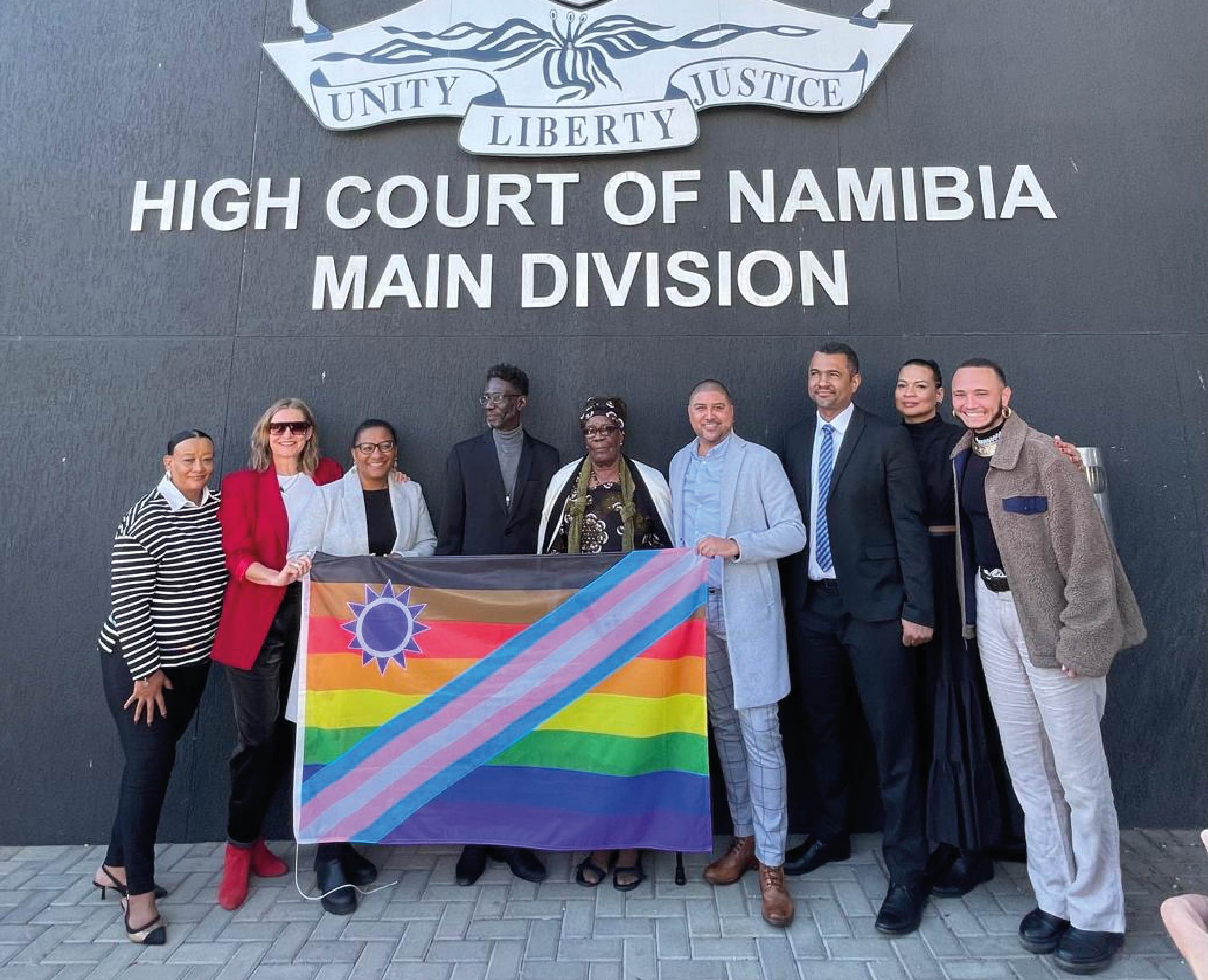The Human Dignity Trust has published a ground-breaking series of reports investigating in detail how countries in four regions of the world have recently reformed outdated and discriminatory sexual offences laws.
Across much of the world, sexual offence laws still criminalise LGBT people, provide immunity for rape in marriage, fail to provide comprehensive protection for all people against rape and sexual assault, and use derogatory terms to describe persons with disabilities. With generous support from Global Affairs Canada, the Human Dignity Trust developed a series of case studies examining the ways in which six diverse Commonwealth and similarly situated governments around the world have achieved reform of these laws in recent years.
The case studies are the first of their kind and include examples of both wholesale updating of criminal codes, allowing multiple issues to be tackled together, and targeted legislative reform focusing on specific issues. By showcasing these examples, it is hoped that other countries can be inspired and assisted to undertake similar reforms.
Commonwealth countries – many of which continue to criminalise their own citizens because of who they are or who they love and which fail to protect a variety of people from sexual violence – have much to learn from countries that have reformed their laws.
This case study series examines in detail the successful law reform processes in six very diverse jurisdictions spanning four regions of the world, mostly in the Commonwealth, but also in non-Commonwealth countries that have a similar legal history and framework. It reveals both common lessons and divergent strategies and contexts, from which other countries considering a path to sexual offences law reform can take inspiration.
The case study series includes:
- Palau, which in 2012 and 2014, respectively, modernised its sexual offences legislation and completed the wholesale updating of its penal code;
- Belize, which in 2014 enacted major reforms to its colonial-era sexual offences laws, including making rape laws gender-neutral to protect both males and females, while achieving decriminalisation of consensual same-sex sexual acts in 2016 through the courts;
- Northern Cyprus, which in 2014 repealed a law that criminalised consensual same-sex sexual conduct, prompted by litigation before the European Court of Human Rights, as part of a package of reforms to the sexual offences chapter of its colonial-era criminal code;
- Mozambique, which in 2015 completed a wholesale updating of its penal code, including the modernisation of its sexual offences laws;
- Seychelles, which in 2016 repealed a law criminalising consensual same-sex sexual intimacy; and
- Nauru, which in 2016 completed a wholesale updating of its criminal code, including the modernisation of its sexual offences laws.
The lessons learnt from across the case studies have been brought together in a summary report, which draws together the similarities from each of the six individual case studies and contrasts the different models of change.
The case studies were developed with the support of the key actors behind the reforms in each country, including policy makers, civil society leaders, politicians and journalists.
The journey was not especially difficult. We needed patience and tenacity, but there were no insurmountable obstacles.
This research series makes clear that while broad-based, human rights driven legislative reform is complex and sometimes controversial, it is possible with the right mix of drivers in place. Clear political leadership, strong civil society and international support provide a powerful force for reform. Delays and obstacles are encountered along the way in most cases, but persistence does ultimately lead to success. Opposition, to a greater or lesser degree, exists everywhere but need not paralyse progress, and indeed governments that engage with the public and persevere with reforms that comply with domestic and international human rights obligations ultimately enjoy increased domestic, regional and international respect and acknowledgement. More importantly, they lay the legal groundwork for better protecting their most marginalised citizens from discrimination, abuse and violence.
Governments that engage with the public and persevere with reforms that comply with domestic and international human rights obligations ultimately enjoy increased domestic, regional and international respect and acknowledgement.
This research series forms part of the Trust’s long-term interrogation of sexual offences legislation. The Trust’s work in this area has been ongoing since 2015 when the need for a broad, intersectional approach to the reform of sexual offence laws throughout the Commonwealth, left behind as a legacy of British colonial rule, became clear. As part of our legislative reform work, the Human Dignity Trust recently launched the flagship report, Good Practice in Human Rights Compliant Sexual Offences Laws in the Commonwealth, which has developed a list of clear and measurable indicators of good practice on the basis of established international human rights standards, against which domestic sexual offence laws can be assessed, and reforms can be guided.
Building on this leading-edge work, the Trust has also mapped the current status of sexual offences laws in all Commonwealth countries, assessing their compliance with the indicators developed in the Good Practice report. The research, Next Steps Towards Reform: Assessing Good Practice And Gaps In Commonwealth Sexual Offences Legislation is presented in a series of five regional reports, using a traffic light system to assess the degree to which the law complies with the good practice criteria.
Taken together, the Good Practice report, the Next Steps series, and the case studies of successful reform combine to form a rich body of research comprising:
- the standards that sexual offences legislation must meet in order to comply with international human rights law;
- the current state of play of the laws of every Commonwealth jurisdiction and the extent to which these standards are being met; and,
- recent examples of successful reforms, including the drivers of reform and models of change.
This resource base is already informing and shaping the Trust’s technical assistance work and will continue to feed into and guide future reform efforts around the world.
To view and download all of the published reports referenced here and a range of other materials, and to keep up to date with all future publications, visit the Human Dignity Trust’s resources page.




